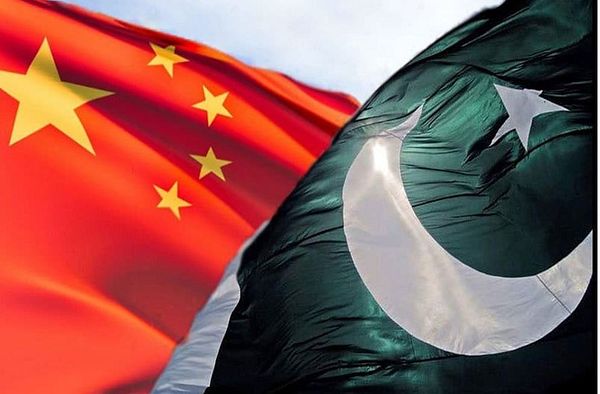
New Vistas of Pak-China Relations By Omay Aimen
The Special Investment Facilitation Council (SIFC), a unified platform that brings together civil and military leadership, has emerged as a pivotal policy component since its establishment in June 2023. It has been instrumental in addressing multiple challenges faced by local businesses and attracting investments from friendly countries.
Foreign Direct Investment (FDI) has mostly encountered peculiar stumbling blocks during any government-to-government or private trade overtures and multinational corporations had trouble repatriating their shares of investment. By providing international investors with a guarantee of profit security, the SIFC has mitigated these worries to produce a conducive atmosphere that is expected to draw in up to an expected $60 billion in investments over five years. The SIFC has played a significant role in stabilising Pakistan’s foreign currency reserves; one of its major successes. Exchange businesses made a record-breaking $450 million in sales to banks in May 2024, making a substantial contribution to reserve building.
A new record of around $4 billion is predicted to be sold to banks throughout the fiscal year. The currency market has become even more stable as a result of the SIFC’s measures to crack down on the smuggling of foreign money. Smoother and more transparent transactions have been made possible by the advent of United Bank Limited (UBL), the third major commercial bank to run a foreign currency exchange operation, after Habib Bank Limited (HBL) and the National Bank of Pakistan (NBL). These feats in economic revival are an outcome whole of the system approach where military leadership has emerged as an important stakeholder.
The success of CPEC has the potential to promote regional connectivity and integration, not just between China and Pakistan.
Any foreign or domestic investment ought to accrue desired dividends if a conducive security environment is available in the country. Pakistan Army being custodian of security thus becomes a symbol of assurance to investors for policy continuity and security. Pak-China relationship has a long history spanning 73 years, with China being Pak’s all-weather friend, supporting Pakistan through thick and thin. The visit of the Prime Minister to China is also an effort in this regard where the presence of COAS General Asim Munir is reflective of a “whole of the system approach”.
Traditionally, China has always been a reliable partner of Pakistan since the foundation of diplomatic relations laid in the early 1950s. This connection has developed over time into multiple arenas ranging from Geo-Strategic to massive economic collaboration. The success of PM’s visit to China is evident in the official statements issued by both countries. During discussions, new avenues for establishing multiple phases under CPEC 2 were explored. Pakistan reaffirmed its commitment to the One China policy and endorsed Taiwan as a part of China. China, in turn, fully endorsed Pak’s integrity, sovereignty, and Kashmir policy.
The initiation of the China-Pakistan Economic Corridor (CPEC) in 2013 has brought new dimensions to this bilateral relationship between the two countries. The CPEC has been embedded as a bedrock in SIFC’s initiatives due to its robust geopolitical and economic connections between the two countries. CPEC aims to boost bilateral commerce to unprecedented levels by enhancing connectivity and economic integration, promoting mutual prosperity and regional development. Consequently, bilateral trade between both countries has significantly increased and today it stands at around $20 billion.
The recent visit of Pakistan’s high-powered delegation under the Prime Minister has surely given a new impetus to this strategic project. The presence of COAS General Asim Munir in the meeting with President Xi Jinping has underscored Pakistan’s seriousness and restored Chinese confidence in the security of CPEC and policy continuity. Pakistan Army’s continued engagement with Chinese military counterparts has always been regarded as a benchmark example of military diplomacy augmenting the country’s bilateral relations with our strategic ally China. The strategic partnership between China and Pakistan was further cemented by President Xi Jinping’s public reaffirmation of China’s commitment to promoting high-quality joint CPEC construction and upgrading the corridor, highlighting their shared vision for the project’s future development and success.
The prospects for Sino-Pakistani economic cooperation seem bright since both countries are dedicated to strengthening their alliance. President Xi Jinping’s declaration of China’s will to advance high-calibre cooperative CPEC construction and develop an improved CPEC represents the country’s strategic outlook. With additional sectors of collaboration including technology, healthcare, and education, this enhanced version of CPEC seeks to broaden its reach. Future CPEC developments will place a strong emphasis on sustainability. China’s assurance of enhancing its exports, cooperation in the fields of Information Technology, strategic cooperation to counter the regional threats, upgradation of ML-1 from Karachi to Peshawar and opening up of Sust and Khunjrab Pass for trade activities throughout the year were significant decisions reached during this important visit. Both states also agreed on the developing exploration of mines and minerals and converting Gwadar into a trade hub of the region.
The success of CPEC has the potential to promote regional connectivity and integration, not just between China and Pakistan. The Middle East, Central Asia, and South Asia may all become more economically integrated with the help of CPEC’s improved infrastructure and trade channels. It is anticipated that increased regional connection would provide wealth for everybody, peace, and new business possibilities.
The writer frequently contributes to national and regional issues. She can be reached at: omayaimen333@gmail.com
New Vistas of Pak-China Relations By Omay Aimen
Source: https://dailytimes.com.pk/1200384/new-vistas-of-pak-china-relations/


